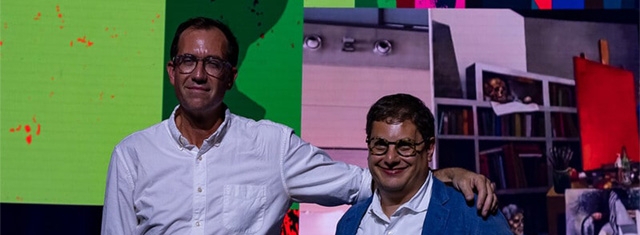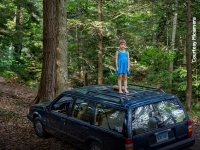Lifestyle
“SAYING YES” A CONVERSATION BETWEEN GUS POWELL AND JOEL MEYEROWITZ
Contemporary photography back to Meeting

New Yorker photographer Gus Powell (Source: https://www.meetingrimini.org)
USPA NEWS -
On the occasion of the Family Car Trouble exhibition, Gus Powell (New York, 1974) was in conversation with another renowned American photographer, Joel Meyerowitz (New York, 1938), to discuss how photography can represent and celebrate life in front of and around us.
Is there a proper distance to things, and where does our control go?
How do we narrate life and death?
Is there a proper distance to things, and where does our control go?
How do we narrate life and death?
Great contemporary photography returns to the Rimini Meeting with a master of photography, Gus Powell, present with an exhibition taken from his book 'Family car trouble', a photographic volume created like a novel, with images to tell the story.
Powell, from New York, spoke about it in a presentation meeting entitled 'Say yes' which was also attended (remotely) by Joel Meyerowitz, the photographer who spent nine months in the crater of Ground Zero after the demolition of the twin towers to document the pain, death, relief, reconstruction, hope. Photos as stories, sensations, instincts, the desire to tell. Looking at the world around and seizing a moment that can represent it, or at least arouse a fascination: the two professionals agreed on this.
Powell, from New York, spoke about it in a presentation meeting entitled 'Say yes' which was also attended (remotely) by Joel Meyerowitz, the photographer who spent nine months in the crater of Ground Zero after the demolition of the twin towers to document the pain, death, relief, reconstruction, hope. Photos as stories, sensations, instincts, the desire to tell. Looking at the world around and seizing a moment that can represent it, or at least arouse a fascination: the two professionals agreed on this.
“The photographer says yes to reality - said Powell - to what he sees happening, but also to what could happen and that the shot only suggests. They are moments of immortalized beauty and at the same time stages of a journey ”.
"The photographs raise questions and interpretations, suggesting hypotheses for interpreting reality that is often full of ambiguity and mystery, - echoed Meyerowitz - show that there is a transcendent beauty in normal places. Time takes us away from the events that have taken place, but the photo reminds us that we need beauty in life ”.
"The photographs raise questions and interpretations, suggesting hypotheses for interpreting reality that is often full of ambiguity and mystery, - echoed Meyerowitz - show that there is a transcendent beauty in normal places. Time takes us away from the events that have taken place, but the photo reminds us that we need beauty in life ”.
Liability for this article lies with the author, who also holds the copyright. Editorial content from USPA may be quoted on other websites as long as the quote comprises no more than 5% of the entire text, is marked as such and the source is named (via hyperlink).






